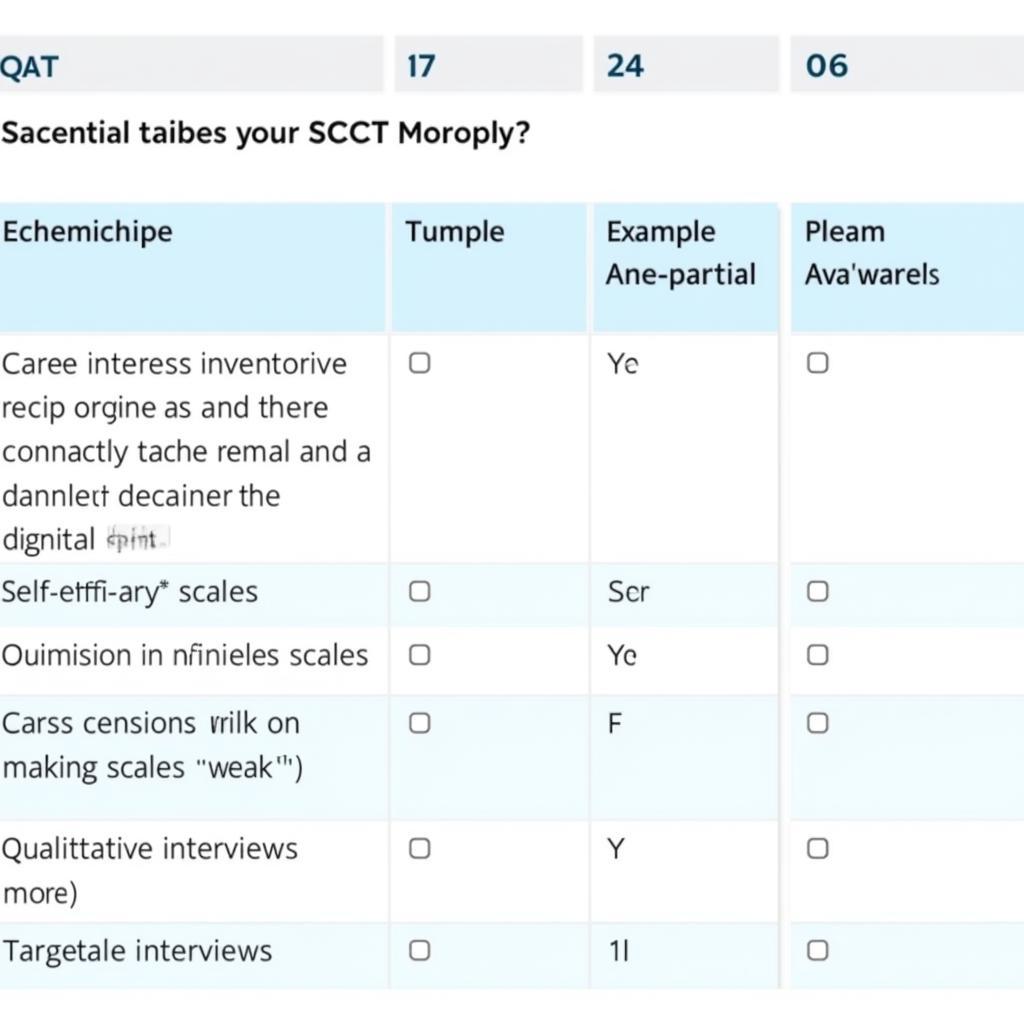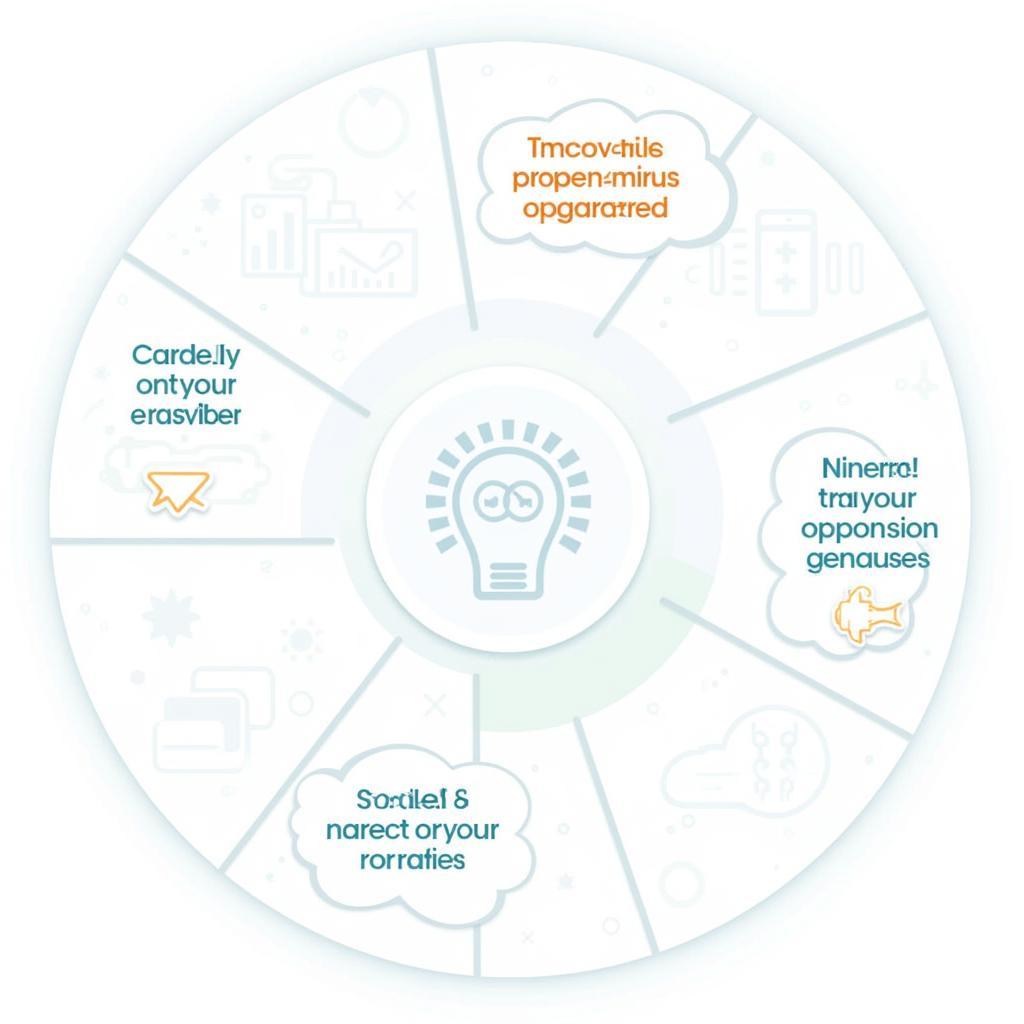Social cognitive career theory (SCCT) assessment tools offer valuable insights into individual career development. These tools help to identify key factors influencing career choices, paving the way for more informed decision-making and career planning.
Understanding Social Cognitive Career Theory and Its Assessment Tools
Social cognitive career theory posits that career development is a dynamic interplay of personal factors, environmental influences, and learning experiences. Assessment tools rooted in SCCT help individuals and career counselors explore these factors, facilitating a deeper understanding of career interests, goals, and potential barriers. These tools are instrumental in providing a framework for effective career counseling and intervention.
Key Components of SCCT Assessments
SCCT assessments typically focus on several key components, including:
- Self-Efficacy: Assessing an individual’s belief in their ability to successfully perform specific tasks or achieve particular career outcomes.
- Outcome Expectations: Evaluating an individual’s anticipated results of pursuing a specific career path.
- Interests: Identifying an individual’s preferences for certain activities or occupational fields.
- Goals: Exploring an individual’s short-term and long-term career aspirations.
- Barriers: Identifying perceived obstacles that may hinder career development.
Types of SCCT Assessment Tools
Various tools are available for assessing SCCT constructs. These tools range from structured questionnaires to qualitative interviews and can be tailored to different age groups and career stages. Some common types include:
- Career Interest Inventories: These tools assess an individual’s interests and preferences for different occupational fields.
- Self-Efficacy Scales: These measures evaluate an individual’s confidence in their ability to perform specific career-related tasks.
- Career Decision-Making Scales: These assessments examine an individual’s decision-making style and ability to effectively navigate career choices.
- Qualitative Interviews: These provide a deeper understanding of an individual’s career narratives, experiences, and perceived barriers.
 Types of SCCT Assessment Tools
Types of SCCT Assessment Tools
Applying SCCT Assessment Tools in Career Counseling
SCCT assessments provide valuable information that can guide career counseling interventions. They can help:
- Identify Career Goals: Understanding an individual’s aspirations and aligning them with realistic career options.
- Develop Self-Efficacy: Building confidence in an individual’s ability to pursue and succeed in their chosen career.
- Overcome Barriers: Addressing perceived obstacles that may hinder career development, such as lack of resources or social support.
- Enhance Decision-Making Skills: Equipping individuals with the skills to make informed career choices.
“SCCT assessments provide a roadmap for career exploration and development,” says Dr. Amelia Carter, a leading career counselor. “They empower individuals to take ownership of their career journey and make informed decisions.”
Benefits of Using SCCT Assessment Tools
Using SCCT assessment tools can yield numerous benefits for both individuals and organizations:
- Improved Career Satisfaction: Making more informed career choices leads to greater satisfaction and fulfillment.
- Increased Career Success: Identifying and developing relevant skills enhances career prospects and success.
- Enhanced Self-Awareness: Gaining a deeper understanding of one’s strengths, weaknesses, and career aspirations.
- More Effective Career Planning: Developing realistic career plans based on individual factors and environmental influences.
 Benefits of Using SCCT Assessment Tools
Benefits of Using SCCT Assessment Tools
Conclusion
Social Cognitive Career Theory Assessment Tools provide invaluable resources for understanding and navigating the complexities of career development. By utilizing these tools, individuals and career counselors can gain insights into the factors influencing career choices, leading to more informed decisions and ultimately, greater career satisfaction and success. These assessments are key to unlocking individual potential and achieving career fulfillment. Leveraging SCCT assessment tools can empower individuals to proactively shape their career paths and reach their full potential.
FAQ
- What is the main purpose of SCCT assessment tools?
- What are the key components assessed in SCCT?
- What are some examples of SCCT assessment tools?
- How can SCCT assessments benefit career counseling?
- How can individuals access SCCT assessment tools?
- What are the limitations of SCCT assessment tools?
- How can SCCT assessments be used in conjunction with other career development theories?
Need further assistance? Contact us via WhatsApp: +1(641)206-8880, Email: [email protected] or visit us at 910 Cedar Lane, Chicago, IL 60605, USA. Our 24/7 customer support team is ready to help.

Leave a Reply